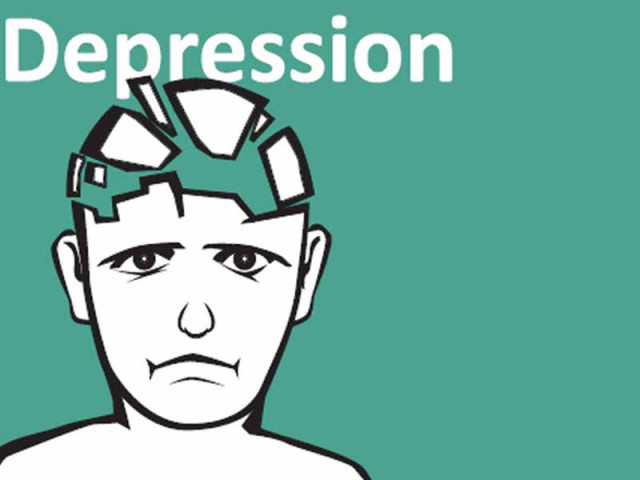Health tips: Down and out
Patients of clinical depressions are perpetually caught in a state of mental desolation, unable to snap out of it.

Health tips: Down and out
Once in a while, we all feel ‘depressed’ because things are not going our way. But then we usually snap out of that state and move on. We let go of the anxieties that plague our minds and move on with lives. While most of us would think that it’s not very difficult to lift our sagging spirits after a phase of unhappiness, that’s not the case for everyone.
Imagine being perpetually caught in that state of mental desolation and being unable to snap out of it. This is how patients of clinical depression feel. And it’s not simply because of negative sentiments and feelings that overpower them momentarily, but due to actual altered levels of chemical in the brain.
The onset of depression can actually happen at any age— even children can suffer from it. Depressed people are often fatigued, unable to get out of bed and disinterested in doing anything. They might often be overcome by crying spells or a general feeling of hopelessness, despair and gloom while younger patients might often act irritable. Their self-esteem is usually very low and they suffer from excessive self-reproach. Their sleep and appetite also suffers. If such a state persisting for two weeks or more, a mental health professional needs to be paid a visit.
Usually biological aberrations and inherited traits might predispose people to depression. If a person’s family members have mental health complaints, then it’s likely that he or she will be more vulnerable to depression. Major life events might serve as precipitating factors such as death of someone close, unemployment, a breakup or divorce. Psychosocial events — an unhappy childhood, being around depressed people and a weak social support system — also play a role in spurring depression.
Family members, friends and co-workers who spend time with the depressed patient, should be watching out for exacerbation of symptoms and should encourage the patient to seek medical help. Treatment might involve therapy, or both therapy and medicine. The importance of both modalities.
As a nation, we generally do not openly discuss our personal problems. In addition to this reluctance to express our mental trials and tribulations, we live in a society where seeking mental help is a taboo. But seeking therapy for depression is of utmost importance. The therapist and patient need to work together to work through the problems over the course of time, which otherwise will still be there when the effect of the pill has worn off. Self-help will entail instituting habits like daily exercise, a healthy diet, sleep hygiene and a creative expression for cathartic purposes.
Every 40 seconds someone kills himself. Count the few minutes that has taken you to peruse this article and you will realise how widely prevalent depression is. Suicide attempts are 20 times as many, and should be considered a psychiatric emergency. The people around the patient need to ensure that he or she gets the medical attention that they require.
Published in The Express Tribune, February 11th, 2012.



















COMMENTS
Comments are moderated and generally will be posted if they are on-topic and not abusive.
For more information, please see our Comments FAQ